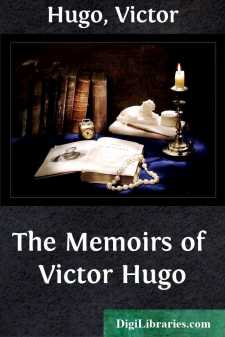Categories
- Antiques & Collectibles 13
- Architecture 36
- Art 48
- Bibles 22
- Biography & Autobiography 813
- Body, Mind & Spirit 142
- Business & Economics 28
- Children's Books 17
- Children's Fiction 14
- Computers 4
- Cooking 94
- Crafts & Hobbies 4
- Drama 346
- Education 46
- Family & Relationships 57
- Fiction 11829
- Games 19
- Gardening 17
- Health & Fitness 34
- History 1377
- House & Home 1
- Humor 147
- Juvenile Fiction 1873
- Juvenile Nonfiction 202
- Language Arts & Disciplines 88
- Law 16
- Literary Collections 686
- Literary Criticism 179
- Mathematics 13
- Medical 41
- Music 40
- Nature 179
- Non-Classifiable 1768
- Performing Arts 7
- Periodicals 1453
- Philosophy 64
- Photography 2
- Poetry 896
- Political Science 203
- Psychology 42
- Reference 154
- Religion 513
- Science 126
- Self-Help 84
- Social Science 81
- Sports & Recreation 34
- Study Aids 3
- Technology & Engineering 59
- Transportation 23
- Travel 463
- True Crime 29
Poems
by: Victor Hugo
Description:
Excerpt
Towards the close of the First French Revolution, Joseph Leopold Sigisbert
Hugo, son of a joiner at Nancy, and an officer risen from the ranks in the
Republican army, married Sophie Trébuchet, daughter of a Nantes fitter-out
of privateers, a Vendean royalist and devotee.
Victor Marie Hugo, their second son, was born on the 26th of February, 1802, at Besançon, France. Though a weakling, he was carried, with his boy-brothers, in the train of their father through the south of France, in pursuit of Fra Diavolo, the Italian brigand, and finally into Spain.
Colonel Hugo had become General, and there, besides being governor over three provinces, was Lord High Steward at King Joseph's court, where his eldest son Abel was installed as page. The other two were educated for similar posts among hostile young Spaniards under stern priestly tutors in the Nobles' College at Madrid, a palace become a monastery. Upon the English advance to free Spain of the invaders, the general and Abel remained at bay, whilst the mother and children hastened to Paris.
Again, in a house once a convent, Victor and his brother Eugène were taught by priests until, by the accident of their roof sheltering a comrade of their father's, a change of tutor was afforded them. This was General Lahorie, a man of superior education, main supporter of Malet in his daring plot to take the government into the Republicans' hands during the absence of Napoleon I. in Russia. Lahorie read old French and Latin with Victor till the police scented him out and led him to execution, October, 1812.
School claimed the young Hugos after this tragical episode, where they were oddities among the humdrum tradesmen's sons. Victor, thoughtful and taciturn, rhymed profusely in tragedies, "printing" in his books, "Châteaubriand or nothing!" and engaging his more animated brother to flourish the Cid's sword and roar the tyrant's speeches.
In 1814, both suffered a sympathetic anxiety as their father held out at Thionville against the Allies, finally repulsing them by a sortie. This was pure loyalty to the fallen Bonaparte, for Hugo had lost his all in Spain, his very savings having been sunk in real estate, through King Joseph's insistence on his adherents investing to prove they had "come to stay."
The Bourbons enthroned anew, General Hugo received, less for his neutrality than thanks to his wife's piety and loyalty, confirmation of his title and rank, and, moreover, a fieldmarshalship. Abel was accepted as a page, too, but there was no money awarded the ex-Bonapartist—money being what the Eaglet at Reichstadt most required for an attempt at his father's throne—and the poor officer was left in seclusion to write consolingly about his campaigns and "Defences of Fortified Towns."
Decidedly the pen had superseded the sword, for Victor and Eugène were scribbling away in ephemeral political sheets as apprenticeship to founding a periodical of their own.
Victor's poetry became remarkable in La Muse Française and Le Conservateur Littéraire, the odes being permeated with Legitimist and anti-revolutionary sentiments delightful to the taste of Madam Hugo, member as she was of the courtly Order of the Royal Lily.
In 1817, the French Academy honorably mentioned Victor's "Odes on the Advantages of Study," with a misgiving that some elder hand was masked under the line ascribing "scant fifteen years" to the author....







